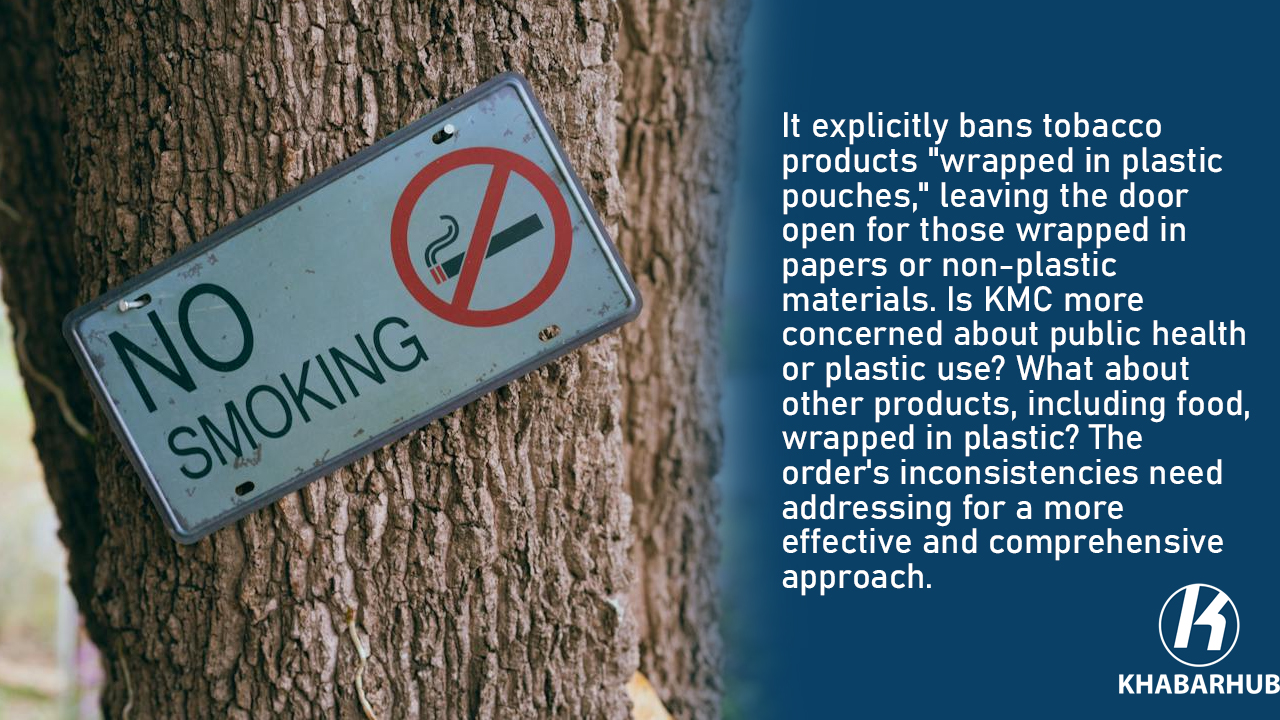KATHMANDU: Kathmandu Metropolitan City has thrown down the gauntlet by imposing a ban on the sale and use of tobacco products, particularly those wrapped in plastic pouches, within its jurisdiction.
However, what appears to be a commendable move for public health is starting to feel like biting off more than one can chew. The real challenge lies in the implementation of this ambitious decision.
While the local government’s concern for public health is praiseworthy, the methods chosen to control tobacco use seem like a half-baked idea.
Surya Nepal and similar tobacco giants contribute significantly to the government’s revenue through taxes, even earning accolades. At a time when the central government is rewarding such contributions, a unilateral decision by the local level might be more symbolic than substantial.
The order itself raises questions. It explicitly bans tobacco products “wrapped in plastic pouches,” leaving the door open for those wrapped in papers or non-plastic materials.
Is KMC more concerned about public health or plastic use? What about other products, including food, wrapped in plastic? The order’s inconsistencies need addressing for a more effective and comprehensive approach.
Rather than making elusive decisions, the authority could consider proven measures from around the world. Many countries, like Ireland and Uruguay, have implemented complete smoking bans in public places, workplaces, and public transport.
KMC could explore similar avenues, introducing age limits and higher taxes, aligning with global efforts to create smoke-free environments.
For example, Mexico boasts some of the world’s strictest anti-smoking laws, including bans at beaches, parks, and even some private homes.
Portugal aims for a “smoke-free generation” by 2040, with plans to restrict tobacco sales in certain establishments.
Canada has set an ambitious goal to reduce tobacco use to less than 5% by 2035, recently mandating health warnings directly on individual cigarette packaging.
As KMC ventures into uncharted territory with its tobacco ban, looking to successful global models can offer valuable insights.
By adopting comprehensive and enforceable measures, learning from the experiences of countries with successful anti-smoking policies, KMC can pave the way for a healthier and more sustainable approach to curbing tobacco use within its jurisdiction.









Comment